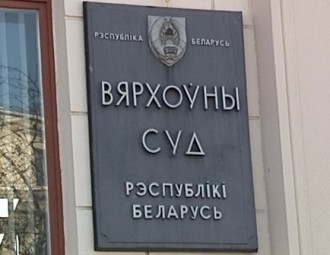Supreme Court: Justice transparency possible without limiting procedural rights
The Supreme Court issued a Resolution of its Plenum under No. 11 entitled “On ensuring transparency in the administration of justice and access to information about the activities of the courts", adopted on December 20, 2013.
The need for clarification from the highest judicial governing body was evident. Issues of transparency of court proceedings are ambiguously interpreted by professionals and also cause criticism from human rights activists, as in some cases public access to court proceedings is unreasonably restricted. This is particularly evident in cases that stirred public outcry.
It should be borne in mind, however, that transparency is one of the universal basic guarantees of a fair trial, as reflected in international treaties, the Constitution and the sectoral legislation of Belarus.
The Resolution’s requirements of the strict observance of the Constitution and the provisions of international instruments, the need to ensure access to information about the activities of the courts, detailed regulation of the conditions of open and closed hearings, together with the timeliness and significance of the issue, reflect the progressive nature of the adopted document.
The draft of the said Resolution, prior to its adoption, was sent to the courts, prosecuting authorities and bar associations for consideration. One of the controversial provisions of this document was paragraph 15 which governs the rights and obligations of participants in the trial in a closed court session. Under the paragraph of the draft resolution, when hearing a case in a closed court session, the lawyer, after being forced to sign a nondisclosure obligation, cannot record the course of the trial either in writing or by any other means. In this regard, there was an opinion that such a ban was a restriction on the lawyers’ performing of their professional duties, contrary to the constitutional principles and international standards of providing legal aid.
The final version of the Resolution does not mention the prohibitions and restrictions. Encouraging is the fact that the highest court of Belarus demonstrates understanding and respect for fair trial standards. It is hoped that this will continue.


















